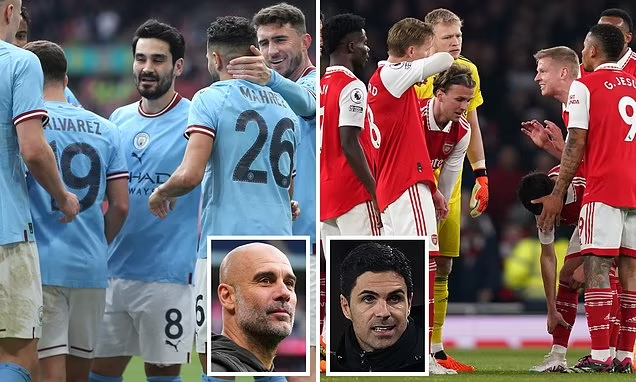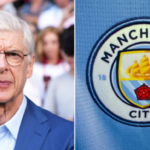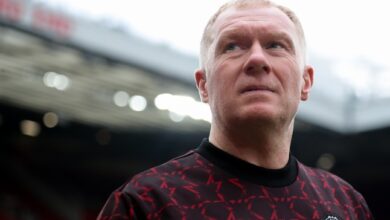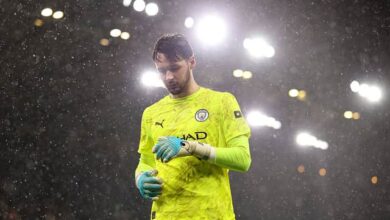Nasri in four words share what happened between him and Arsene Wenger
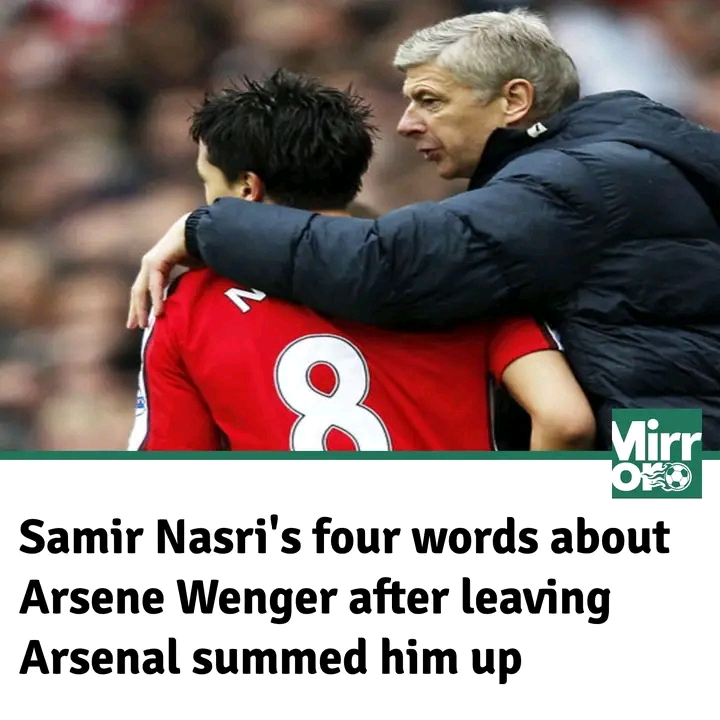
As Arsenal prepares to face Manchester City this Sunday at the Emirates Stadium, the story of Samir Nasri’s complicated relationship with both clubs offers an intriguing backdrop to this crucial Premier League clash. While Nasri’s departure from Arsenal to Manchester City in 2011 created significant controversy, his later defense of Arsene Wenger revealed a more nuanced perspective on his time in North London.
Samir Nasri arrived at Arsenal in 2008 from Marseille as a promising young talent. Under Arsene Wenger’s guidance, he quickly developed into one of the Premier League’s most exciting players. His technical ability, vision, and creativity made him a fan favorite at the Emirates Stadium. During his three years at Arsenal, Nasri showcased the kind of potential that made many believe he would become a cornerstone of the club’s future.
The 2010/2011 season proved particularly successful for Nasri, as he reached new heights in his performance level. With Cesc Fabregas’s departure looming, Arsenal looked to Nasri as their next midfield leader. The stage seemed set for him to become one of Arsenal’s key figures in their pursuit of returning to Premier League glory.
However, the summer of 2011 brought unexpected changes. Nasri decided to leave Arsenal for Manchester City, becoming the fourth Arsenal player in recent years to make this switch, following Emmanuel Adebayor, Kolo Toure, and Gael Clichy. This transfer particularly stung Arsenal supporters for several reasons:
1. The Timing: It came when Arsenal was trying to rebuild after losing other key players
2. The Destination: Manchester City was emerging as a direct rival thanks to their new wealthy ownership
3. The Pattern: It continued a trend of Arsenal losing top players to domestic competitors
4. The Manner: Nasri’s comments after the transfer appeared to prioritize financial gain over loyalty
The relationship between Nasri and Arsenal fans deteriorated rapidly. In his final appearance for Arsenal, a defeat against Liverpool, he faced boos from the same supporters who had once celebrated his every touch. The situation worsened when he discussed his motivations for leaving.
After joining Manchester City, Nasri made several statements that further antagonized Arsenal supporters. He admitted to improving his financial situation through the move, stating: “Yes, economically I have a better life now than what I had at Arsenal. It’s normal.” While he attempted to frame this as a logical career decision, comparing it to a journalist taking a better-paying job, the comments struck a nerve with Arsenal fans who valued club loyalty over financial gain.
In 2014, Nasri doubled down on his decision, pointing to Arsenal’s lack of silverware during his time there. He told The Telegraph that his primary motivation was winning trophies, and later told beIN Sport, “I don’t regret leaving Arsenal. I won the league while Arsenal have difficulty finishing fourth.” These comments, particularly during Arsenal’s challenging period, created an even deeper rift between Nasri and his former club’s supporters.
The Unexpected Defense of Wenger
Despite the animosity between Nasri and Arsenal fans, a surprising moment came in 2017 when he defended Arsene Wenger during a period of intense criticism. With Arsenal struggling and fans calling for Wenger’s departure, Nasri made headlines with his statement: “You cannot criticise a guy like that, it is impossible.” His defense of Wenger went beyond mere politeness. Nasri provided a thoughtful analysis of Wenger’s impact:
1. On Arsenal’s Growth: “Arsenal was a big club but he made it even bigger.”
2. On Accountability: He argued that players, not the manager, were responsible for poor results
3. On Personal Development: He credited Wenger for his own growth as a player
4. On Wenger’s Legacy: He emphasized the manager’s role in developing players who succeeded even after leaving Arsenal
These comments revealed a more complex relationship than the public narrative suggested. While Nasri’s relationship with Arsenal fans remained fractured, his respect for Wenger never wavered. He later elaborated: “Wenger is the best coach I’ve worked with. I only regret not having more discussions with Arsene when I left. He’s the one who understood me the most and made me the player I am. I’m thankful.”
At Manchester City, Nasri’s decision to leave Arsenal was validatedhrough silverware. He won two Premier League titles and became part of the club’s transformation into one of English football’s dominant forces. However, his success at City came with a cost – every return to the Emirates Stadium was met with hostile receptions from Arsenal supporters.
The Broader Context
Nasri’s story reflects broader themes in modern football:
1. Player Loyalty vs. Career Advancement: The tension between club loyalty and professional ambition
2. Financial Power in Football: The impact of wealthy ownership on competitive balance
3. Manager-Player Relationships: How professional respect can survive despite club rivalries
4. Fan Culture: The complex dynamics between supporters and departing players
Years after his retirement, Nasri’s relationship with Arsenal remains complicated. While he maintains his support for Manchester City in their encounters with Arsenal, his defense of Wenger showed a more nuanced perspective than his initial departure suggested. His story serves as a reminder that football relationships are rarely simple and often contain contradictions.
As Arsenal and Manchester City prepare to face each other this weekend, Nasri’s story provides an interesting historical backdrop. The fixture has grown in significance since his playing days, with both teams now regularly competing for the Premier League title. The current match carries particular importance:
– Arsenal needs a victory to keep pace with league leaders Liverpool
– Manchester City could close the gap to just three points with a win
– The result could significantly impact the Premier League title race
Nasri’s journey from Arsenal to Manchester City, and his subsequent comments about both clubs, reflect the complex nature of modern football careers. While his departure from Arsenal was bitter, his later defense of Wenger showed maturity and perspective that time often brings. His story serves as a reminder that in football, as in life, relationships and loyalties are often more complicated than they appear on the surface.
The upcoming match between Arsenal and Manchester City will write another chapter in a rivalry that has grown significantly since Nasri’s transfer in 2011. While he may be supporting Manchester City, his comments about Wenger remain a testament to the lasting impact good managers can have on players, transcending the boundaries of club loyalties
Samir Nasri’s story represents more than just a controversial transfer or a player’s career choices. It illustrates the complex relationships in modern football between players, managers, clubs, and fans. His defense of Wenger years after leaving Arsenal shows how professional respect can endure even when other relationships become strained. As Arsenal and Manchester City continue their rivalry this weekend, Nasri’s experience serves as a reminder that in football, nothing is ever simply black and white.
